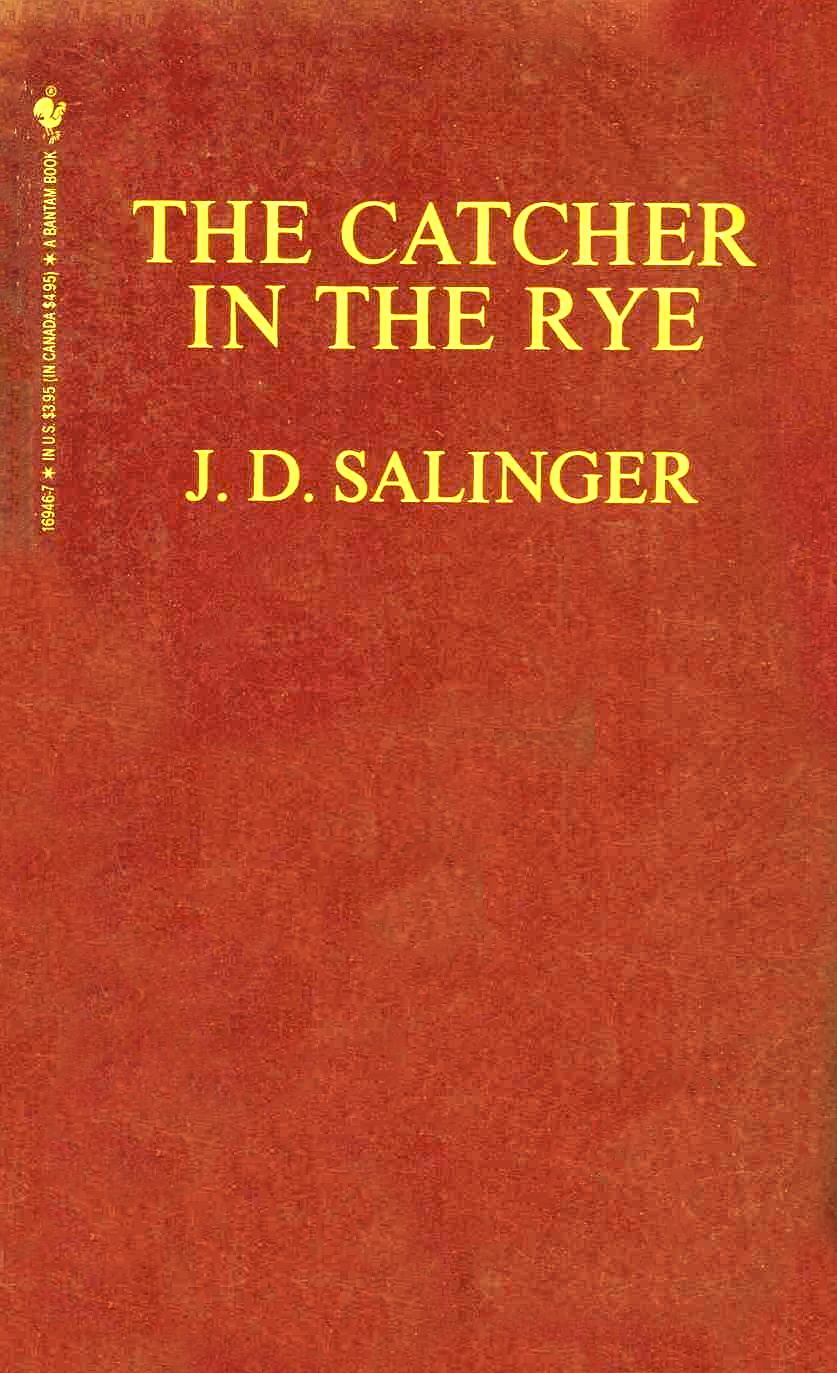Even though it was Sunday and Phoebe wouldn't be there with her class or anything, and even though it was so damp and lousy out, I walked all the way through the park over to the Museum of Natural History. I knew that was the museum the kid with the skate key meant. I knew that whole museum routine like a book. Phoebe went to the same school I went to when I was a kid, and we used to go there all the time. We had this teacher, Miss Aigletinger, that took us there damn near every Saturday. Sometimes we looked at the animals and sometimes we looked at the stuff the Indians had made in ancient times. Pottery and straw baskets and all stuff like that. I get very happy when I think about it. Even now. I remember after we looked at all the Indian stuff, usually we went to see some movie in this big auditorium. Columbus. They were always showing Columbus discovering America, having one helluva time getting old Ferdinand and Isabella to lend him the dough to buy ships with, and then the sailors mutinying on him and all. Nobody gave too much of a damn about old Columbus, but you always had a lot of candy and gum and stuff with you, and the inside of that auditorium had such a nice smell. It always smelled like it was raining outside, even if it wasn't, and you were in the only nice, dry, cosy place in the world. I loved that damn museum. I remember you had to go through the Indian Room to get to the auditorium. It was a long, long room, and you were only supposed to whisper. The teacher would go first, then the class. You'd be two rows of kids, and you'd have a partner. Most of the time my partner was this girl named Gertrude Levine. She always wanted to hold your hand, and her hand was always sticky or sweaty or something. The floor was all stone, and if you had some marbles in your hand and you dropped them, they bounced like madmen all over the floor and made a helluva racket, and the teacher would hold up the class and go back and see what the hell was going on. She never got sore, though, Miss Aigletinger. Then you'd pass by this long, long Indian war canoe, about as long as three goddam Cadillacs in a row, with about twenty Indians in it, some of them paddling, some of them just standing around looking tough, and they all had war paint all over their faces. There was one very spooky guy in the back of the canoe, with a mask on. He was the witch doctor. He gave me the creeps, but I liked him anyway. Another thing, if you touched one of the paddles or anything while you were passing, one of the guards would say to you, "Don't touch anything, children," but he always said it in a nice voice, not like a goddam cop or anything. Then you'd pass by this big glass case, with Indians inside it rubbing sticks together to make a fire, and a squaw weaving a blanket. The squaw that was weaving the blanket was sort of bending over, and you could see her bosom and all. We all used to sneak a good look at it, even the girls, because they were only little kids and they didn't have any more bosom than we did. Then, just before you went inside the auditorium, right near the doors, you passed this Eskimo. He was sitting over a hole in this icy lake, and he was fishing through it. He had about two fish right next to the hole, that he'd already caught. Boy, that museum was full of glass cases. There were even more upstairs, with deer inside them drinking at water holes, and birds flying south for the winter. The birds nearest you were all stuffed and hung up on wires, and the ones in back were just painted on the wall, but they all looked like they were really flying south, and if you bent your head down and sort of looked at them upside down, they looked in an even bigger hurry to fly south. The best thing, though, in that museum was that everything always stayed right where it was. Nobody'd move. You could go there a hundred thousand times, and that Eskimo would still be just finished catching those two fish, the birds would still be on their way south, the deers would still be drinking out of that water hole, with their pretty antlers and their pretty, skinny legs, and that squaw with the naked bosom would still be weaving that same blanket. Nobody'd be different. The only thing that would be different would be you. Not that you'd be so much older or anything. It wouldn't be that, exactly. You'd just be different, that's all.
J.D. Salinger, from The Catcher in the Rye, published on this day in 1951










































































































































































No comments:
Post a Comment